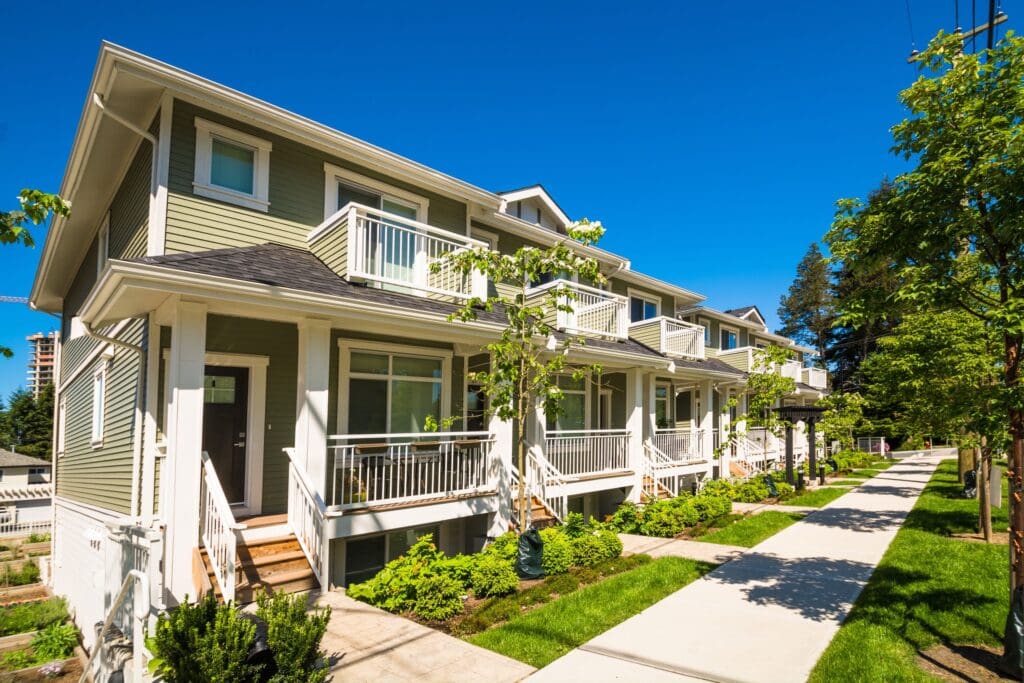At first glance, a mortgage might seem like a daunting and expensive option. A basic monthly payment could appear to be the simple and stress-free solution to finding a residence. One may not know anything or very little about how a mortgage works. Perhaps they retain the false notion that they would be better off in the long run if they avoid the alleged complexity attached to mortgaging a home. The truth is, a mortgage is a much more valuable and affordable option in the long term as opposed to renting. The extra “complexities” quickly change to potential benefits when working with a professional mortgage broker who explains and formulates an appropriate plan specific to the client’s financial status. Having a mortgage provides you with credit options and a potentially generous return on your investment. Renting will give you an immediate residence but leave you empty-handed when you decide to leave. In preparing for future financial stability, it is important to consider renting vs. buying, and which is the wisest decision for the long term.
Long Term Investment

It is vital to understand the value of the long-term investment that comes with taking out a mortgage. With options such as refinancing and equity, a mortgage is a flexible and highly useful tangible financial resource in procuring long-term gains. While property values constantly fluctuate, over long periods of time, they have steadily increased across the country. With the most common type of mortgage being a 30-year fixed-rate loan, the value of the home has a large foreseeable increase by the time the mortgage term ends. Also, with consistent monthly payments and stabilized interest rates, this option comes with a reliable level of predictability. Consistency is crucial when considering renting vs. buying.
Once the initial loan is paid off, homeowners have the ability to use their home as a tangible asset. Home equity can be used to finance remodeling projects or even as credit for business investments. The benefits of building equity can prove to be crucial in gaining a sustainable and progressive financial situation. Home equity is built and increases as payments are made and the amount reflects the property’s market value. It can be utilized as an invaluable source of funds when establishing long-term financial health, making it easier to get a future home loan or a loan on a vehicle. These options are simply nonexistent with renting. At the end of a rental period, monthly payments that you have exhausted remain with the landlord, leaving you with no equity built and no residual finance options. While the mortgage is still active, several financial resources and lines of credit attached to the mortgage exist should the necessity arise.
Credit & Loan Options
A widely accepted misconception about mortgages is that the average monthly payments are more expensive than rent. In reality, monthly mortgage payments can actually come out to be less than rent when working with a broker. They will assist in securing a rate that is within their client’s budget and, depending on the property and loan term, can easily fall under the average monthly cost of rent. Having a mortgage can prove to be more financially beneficial than renting due to the array of options for lines of credit. Refinancing is a useful resource for shortening the remaining loan term and lowering overall monthly payments. Alternatively, refinancing can be used to tap into your home equity should a financial emergency arise. A home equity line of credit, otherwise known as HELOC, are loans that are derived by calculating equity value on a mortgage and are typically used in large home renovation projects, thus increasing the overall value of your home. These can also be used as a basic loan to get cash on hand. Having these options at your disposal can prove to be invaluable to establishing financial stability. Renting comes with none of these options and should you not be able to pay your rent, there seldom exists options to alleviate the situation and you are left at the mercy of your landlord. This is one of the biggest downside for renting vs. buying.
Control Over Your Residence

Owning a home is a major step in our lives and is typically seen as a monumental achievement and it is only appropriate to attach a level of pride to homeownership. With a mortgage and subsequent ownership of a home, you are free to control the appearance of your residence at your will. This includes design choices, additions and alterations. You have the option to mold your home to your liking while at the same time increasing its value. Renovations can be paid for using a home equity line of credit. Home renovations can also qualify for tax exemptions so long as they are itemized. These personalizations can hold immense personal value as well as an increase in financial value. With renting, if the landlord decides to make renovations that you aren’t fond of, your input rarely gets considered. There is also a chance that there are restrictions in place limiting renters from conducting renovations that could be necessary to the integrity of the property. The landlord also holds the right to change the monthly payments with enough notice and decides who can stay and who can go. It is standard to only require a written notice 30 days prior to the date of eviction unless otherwise specified in the lease agreement. There are local laws in place that differ between counties in reference to caps on price increases. For example, Landlords in Maryland must provide a written notice only 60 days prior to the rent increase for residents on a month-to-month tenancy. On a fixed loan, you will be paying the same reliable monthly rate, unless you decide to refinance and lower it. The standard fixed loan is predictable and comes with a reasonable and guaranteed monthly rate.
Another option is an adjustable-rate mortgage, which has a stable rate for 3 – 5 years and then goes through an annual adjustment period, where it is raised or lowered to match the market rate.
Current market rates and trends can be used to your advantage by giving you more control in the rates you pay based on the timing of the mortgage. Mortgage rates are much more foreseeable, stable and are not subject to the single controlling factor of the landlord.Maryland experiences one of the highest rates of rent hikes in the country, with some cities averaging as much as 21% in one year. Ultimately, renting leaves the tenant with few options on customizing their home and minimal say on their continuity of monthly rates.
There is a wide range of methods available that cater to future homeowners. When it comes to renting vs. buying, we think the choice s clear. Here at Federal Hill Mortgage, we consider all of the options available and work to find what best fits their situation in order to create a pathway to a financially stable future. To get started, apply now.

